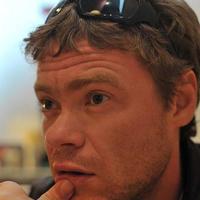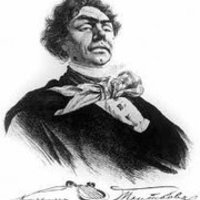
Ivan Gololobov
Ivan Gololobov (b.1975) has previously worked as a Research Fellow at the Norwegian Institute of Foreign Affairs (1998) and at the Institute of International Law of Peace and Armed Conflicts, University of Bochum, Germany (2004–2006), and taught at the University of the West of England in Bristol (2007). He has participated in a number of international research projects including “Far from the cities: Social transformation of the post-Soviet village” (German Research Council 2002–2005) and “The role of regions in transforming post-communist societies” (INTAS 1999–2002). His last project on “Post-socialist punk. Beyond the Double Irony of Self-Abasement” (2009-2013) was hosted at the Department of Sociology, University of Warwick, where he is currently affiliated as an Associate Research Fellow.
Supervisors: Ernesto Laclau, Aletta Norval, David Howarth, Tatiana Alexeeva, Boris Kapustin, and Igor Kuznetsov
Supervisors: Ernesto Laclau, Aletta Norval, David Howarth, Tatiana Alexeeva, Boris Kapustin, and Igor Kuznetsov
less
Related Authors
Andrey Ivanov
Saint-Petersburg State University
Tatiana Romashko
University of Jyväskylä
Olga Gurova
Laurea University of Applied Sciences
Ilya Matveev
University of California, Berkeley
Издательство Крига
Saint-Petersburg State University
Mikhail Ilchenko
Leibniz-Institut für Geschichte und Kultur des östlichen Europa (GWZO) e.V.
InterestsView All (33)







Uploads
Papers by Ivan Gololobov
Abstract
This article investigates the role of excessive drinking in a subcultural scene of Russian punk. Based on an extensive long-term field research, our work demonstrates that the loss of identity and withdrawal from the projects of social identification , usually associated with excessive consumption of alcohol, might not explain all the functions of excessive drinking. The article suggests that in certain situations drinking disgrace, alcoholic exploits and 'heroic incompetency' surrounding consumption of alcohol cause the opposite effect through which individuals do not dissolve their identity but rather construct alternative agency recognized and enacted within a subcultural collective. On the basis of the observations of drinking practices in three geographically defined Russian punk scenes and reflections on these practices produced by the members of the scenes we conclude that excessive drinking can be seen as a specific response through which members of the subcultural groups construct alternative agencies and reclaim their political subjectivity.
Ivan Gololobov. Teaching Fellow, Department of Politics, Languages and
International Studies, University of Bath (UoB). Address: University of Bath, Claverton Down, BA2 7AY Bath, UK. E-mail: i.gololobov@bath.ac.uk.
Yngvar Steinholt. Associate Professor, Department of Language and Culture, The University of Tromsø—The Arctic University of Norway (UiT-AUN). Address: Hansine Hansens veg 18, 9019 Tromsø, Norway. E-mail: yngvar.steinholt@uit.no
Hilary Pilkington. Professor of Sociology, School of Social Sciences, The
University of Manchester (UoM). Address: Arthur Lewis Bldg, Oxford Rd, M13 9PL Manchester, UK. E-mail: hilary.pilkington@manchester.ac.uk.
Keywords: popular culture; punk; cultural history; identity; mimesis; style; protest.
This article concerns the cultural evolution of punk in Russia. The work covers the period from the late 1970s (when the first punks appeared in the USSR) to the mid-2010s. The study offers a critical reflection on (1) the first examinations of the history of Russian punk, which saw Russian punk as a culturally homogenous phenomenon, and (2) Western works understanding Russian punk as an essentially mimetic entity, copying “authentic” Anglo-American originals. Methodologically, the work
departs from the claim of Penny Rimbaud, a musician and philosopher, one of the founding members of The Crass, and a leading ideologist of the DIY movement, on the essentially negative identity of punk. According to Rimbaud, punk continuously avoids positive cultural connotations and resists any closed discursive literality. Investigating the history of the punk scene in Russia, the authors show that, in contrast to Anglo-American punk, Russian punk did not emerge out of a cultural revolution, but rather developed in an evolutionary way. Having emerged on the periphery of rock culture, which itself was a deep underground phenomenon, Russian punk did not aim to confront the commercialization of rock. Instead, it aimed to radicalize the struggle of rock for cultural autonomy. As a result of the inevitable break with both Western punk (which actively distanced itself from mainstream rock) and the Russian rock scene (which did not accept the radical aesthetics of punk), the cultural identity of the punk scene in Russia was inherently precarious and unstable. It was formed in constant negotiation between its relationship with Russian rock culture on the one hand, and Western punk on the other. In the article, the authors distinguish several waves that define the meaning of punk in concrete historical circumstances,
and show how diachronic ruptures fragmented cultural discourse of punk even further, which made it impossible to approach it as a single and homogeneous phenomenon, but which provided it with a unique discursive openness and relevance.
which has resulted in a ‘conceptual distance’ from these kinds of social groups. In this article, we advocate for a return to subjectivity using ethnography, and do so through highlighting examples from our experience from numerous projects
undertaken with different youth cultures where alcohol is central to individual identities and collective social norms. We show, on the one hand, that this kind of research is possible but it requires the researcher to adopt versatility and fieldwork flexibility, while on the other, in some ways to abandon their ethical conceptions of what they are expected to objectively do and instead engage with the group under study. In the paper, we challenge various ethical and methodological dilemmas related to this kind of research.
I know, ladies and gentlemen
I know, I am coming here to stay
And take your jobs away".
Kultur Shock"
Abstract
This article investigates the role of excessive drinking in a subcultural scene of Russian punk. Based on an extensive long-term field research, our work demonstrates that the loss of identity and withdrawal from the projects of social identification , usually associated with excessive consumption of alcohol, might not explain all the functions of excessive drinking. The article suggests that in certain situations drinking disgrace, alcoholic exploits and 'heroic incompetency' surrounding consumption of alcohol cause the opposite effect through which individuals do not dissolve their identity but rather construct alternative agency recognized and enacted within a subcultural collective. On the basis of the observations of drinking practices in three geographically defined Russian punk scenes and reflections on these practices produced by the members of the scenes we conclude that excessive drinking can be seen as a specific response through which members of the subcultural groups construct alternative agencies and reclaim their political subjectivity.
Ivan Gololobov. Teaching Fellow, Department of Politics, Languages and
International Studies, University of Bath (UoB). Address: University of Bath, Claverton Down, BA2 7AY Bath, UK. E-mail: i.gololobov@bath.ac.uk.
Yngvar Steinholt. Associate Professor, Department of Language and Culture, The University of Tromsø—The Arctic University of Norway (UiT-AUN). Address: Hansine Hansens veg 18, 9019 Tromsø, Norway. E-mail: yngvar.steinholt@uit.no
Hilary Pilkington. Professor of Sociology, School of Social Sciences, The
University of Manchester (UoM). Address: Arthur Lewis Bldg, Oxford Rd, M13 9PL Manchester, UK. E-mail: hilary.pilkington@manchester.ac.uk.
Keywords: popular culture; punk; cultural history; identity; mimesis; style; protest.
This article concerns the cultural evolution of punk in Russia. The work covers the period from the late 1970s (when the first punks appeared in the USSR) to the mid-2010s. The study offers a critical reflection on (1) the first examinations of the history of Russian punk, which saw Russian punk as a culturally homogenous phenomenon, and (2) Western works understanding Russian punk as an essentially mimetic entity, copying “authentic” Anglo-American originals. Methodologically, the work
departs from the claim of Penny Rimbaud, a musician and philosopher, one of the founding members of The Crass, and a leading ideologist of the DIY movement, on the essentially negative identity of punk. According to Rimbaud, punk continuously avoids positive cultural connotations and resists any closed discursive literality. Investigating the history of the punk scene in Russia, the authors show that, in contrast to Anglo-American punk, Russian punk did not emerge out of a cultural revolution, but rather developed in an evolutionary way. Having emerged on the periphery of rock culture, which itself was a deep underground phenomenon, Russian punk did not aim to confront the commercialization of rock. Instead, it aimed to radicalize the struggle of rock for cultural autonomy. As a result of the inevitable break with both Western punk (which actively distanced itself from mainstream rock) and the Russian rock scene (which did not accept the radical aesthetics of punk), the cultural identity of the punk scene in Russia was inherently precarious and unstable. It was formed in constant negotiation between its relationship with Russian rock culture on the one hand, and Western punk on the other. In the article, the authors distinguish several waves that define the meaning of punk in concrete historical circumstances,
and show how diachronic ruptures fragmented cultural discourse of punk even further, which made it impossible to approach it as a single and homogeneous phenomenon, but which provided it with a unique discursive openness and relevance.
which has resulted in a ‘conceptual distance’ from these kinds of social groups. In this article, we advocate for a return to subjectivity using ethnography, and do so through highlighting examples from our experience from numerous projects
undertaken with different youth cultures where alcohol is central to individual identities and collective social norms. We show, on the one hand, that this kind of research is possible but it requires the researcher to adopt versatility and fieldwork flexibility, while on the other, in some ways to abandon their ethical conceptions of what they are expected to objectively do and instead engage with the group under study. In the paper, we challenge various ethical and methodological dilemmas related to this kind of research.
I know, ladies and gentlemen
I know, I am coming here to stay
And take your jobs away".
Kultur Shock"
Key words: Critical Discourse Analysis, New Theories of Discourse, ethics, methodology, emancipation, discrimination, inequality"
Ключевые слова: полевые исследования, интервью, психологизация, смех, слезы, семиозис
В сборник включены социологические статьи и эссе, посвященные проблемам постсоветского села (армянский, несколько российских и эстонский кейсы). Мозаика из разных контекстов и кейсов позволяет представить множественность траекторий трансформации постсоветского села, которое в настоящее время являет собой сложный социальный феномен, сочетающий в себе черты советского, постмодернистского, рыночного, а также национального, европейского и глобального обществ.
Все исследования, представленные в книге, выполнены в качественной парадигме. Некоторые из статей имеют методологическое значение и предлагают новые подходы к изучению и пониманию сельского социального пространства. Сборник обращен как к специалистам
в области социологии села, так и к широкой аудитории, интересующейся данной тематикой.
СОДЕРЖАНИЕ:
Е. Богданова, О. Бредникова Что же находится «вдали от городов»? Предисловие от редакторов . . . . . . . . . . . . . . . . . .7
Ингрид Освальд. Индустриализированная деревня. К трансформации сельского образа жизни в постсоциалистических обществах . . . . . . . . . . . . . . . . . . . . . .8
Ольга Бредникова. Деревня умерла? Да здравствует деревня! . . . . . . . . . . . . . . . . . . . . . . . . . . . . . . . . . . . . . . . . . 28
Иван Гололобов. Деревня как не-политическое сообщество:
социальная (дис)организации мира собственных имен .... 59
Оане Виссер. «Пустые» права, социальные обязанности и рабочие отношения.Застой или изменение трудовых отношений на сельхоз предприятиях? . . . . . . . . . . . . . . . . . 79
Елена Богданова. Антропология деревенской двухэтажки:
от исследования жилища к исследованию сообщества ... 105
Анна Папян. Женщина-руководитель армянского села ....126
Елена Никифорова. «Торговцы красотой»: заметки о ребрендинге эстонской деревни . . . . . . . . . . . . . . . . . . . . . . 144
Ольга Фадеева. Феномен многоукладности экономики сибирского села. . . . . . . . . . . . . . . . . . . . . . . . . . . . . . . . . . . . 168
Татьяна Тимофеева. Деревенские «практики воды» . . . . . 185
Татьяна Тимофеева. «Искаженное» пространство жизни.204
Сергей Карнаухов, Наталья Черемных. Пациент скорее мертв?(история одного сибирского сельхозпредприятия)216
The proposed book contributes to both these current agendas. To the rethinking of what punk was, it brings a breadth and depth of empirical research on punk in late Soviet and post-Soviet Russia. This material constitutes the most extensive study of Russian punk to date and fills a substantial gap in the recent cultural history of Russia. It draws on a wide range of sources: music and lyrics of classic as well as new and unknown punk bands; fanzines and social media underpinning punk scenes; interviews with current scene members and influential figures in the historical development of punk scenes; and extensive ethnographic observation and engagement in scenes in three cities in Russia. At the same time, writing about punk from a place usually considered marginal to its inception and development allows a perspective from which to disrupt established canons of knowledge about punk. This study of Russian punk provides real theoretical challenges to classic understandings of punk as either aesthetic movement emerging from Dadaism or as a form of class-based ‘semiotic guerrilla warfare’, rooted, as they are, in Anglo-American cultural experiences and their particular form of documentation. To answer the question of what the ‘new punk’ might be, it uses the experience of the splintering of the meaning of punk across time and space and the diverse meanings attached to it on individual scenes to question key tropes in understandings of punk that underpin reflections on what might constitute a ‘new punk’. These include questions of: the relationship between punk and politics; the meaning of ‘authenticity’ and mimesis in relation to post-1970s punk; and the continued relevance of notions of ‘subculture’ and ‘resistance’.
"
Несмотря на то что исторический опыт России и Советского Союза (история и теория народничества, подъем рабочего движения в начале XX века, опыт построения первого социалистического государства и проблемы приложения марксизма в период «зрелого социализма») непосредственно повлиял на формирование идей Лаклау и Муфф, в России их работы практически не издавались. Переведены несколько статей [1], опубликован ряд интервью [2], однако публикации труда, в котором сформулированы основные идеи авторов, пришлось ждать более тридцати лет.
Столь долгий путь «Гегемонии и социалистической стратегии» к русскому читателю, безусловно, не случаен. Переосмысление марксизма, предпринятое в этой работе, представляло очевидную угрозу догматам марксизма-ленинизма, что делало принципиально невозможной ее публикацию в Советском Союзе. После распада СССР институциональные преграды для развития левой мысли в России, казалось бы, были сломлены, однако на их месте возникли преграды идеологические. В условиях борьбы с наследием марксизма на уровне идеологии и форсированного перехода постсоветской России к рыночной экономике интерес к работе, содержащей в названии фразу «социалистическая стратегия», был предсказуемо невелик. Поток либеральных теорий, захлестнувший интеллектуальное пространство, освобожденное от советского марксизма, окончательно вытеснил постмарксизм из поля зрения отечественных социальных наук.
В начале 2000-х во всем мире наметился кризис неолиберальной модели развития общества, вызвавший закономерный рост критики основных положений этой доктрины. Новое поколение российских ученых, свободных от интеллектуальных и идеологических ограничений первых лет постсоветского транзита, оказалось более открытым к исследованию постмарксистских альтернатив. Тем не менее работы Лаклау и Муфф на протяжении почти двух десятилетий по-прежнему оставались, в своем большинстве, terra incognita [3]. В середине 2000-х русскоязычному читателю стали доступны переводы статей, комментарии и обсуждения их работ, но представлены они были в весьма разрозненном виде. Постмарксизм остается довольно маргинальной областью для учебных программ российских университетов. Даже в среде новых социальных движений, возникших в России в 1990-е и позже, в период путинской «стабильности», политическая философия Лаклау и Муфф известна в лучшем случае по пересказам. Структурные изменения общественных наук в России так и не открыли перспектив для реабилитации постмарксизма. Ситуация, в которой представители отечественных социальных и гуманитарных наук остаются в стороне от актуальных дискуссий современной левой мысли, стала практически естественной.
Как учит сама левая мысль, всякая мнимая «естественность» может быть преодолена только действием, прерывающим «нормальный» ход вещей. Русский перевод «Гегемонии и социалистической стратегии» представляет собой как раз такую попытку изменения «естественного» хода развития социально-политических дискуссий в России.
2017